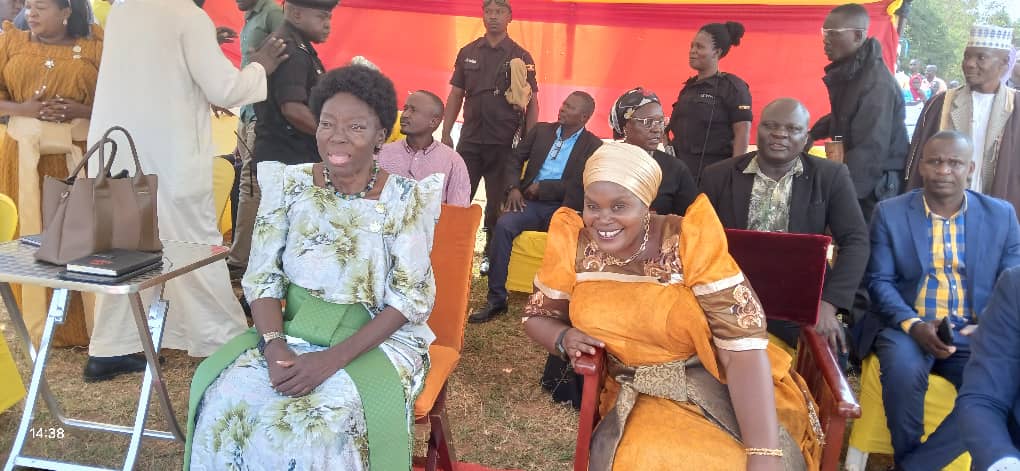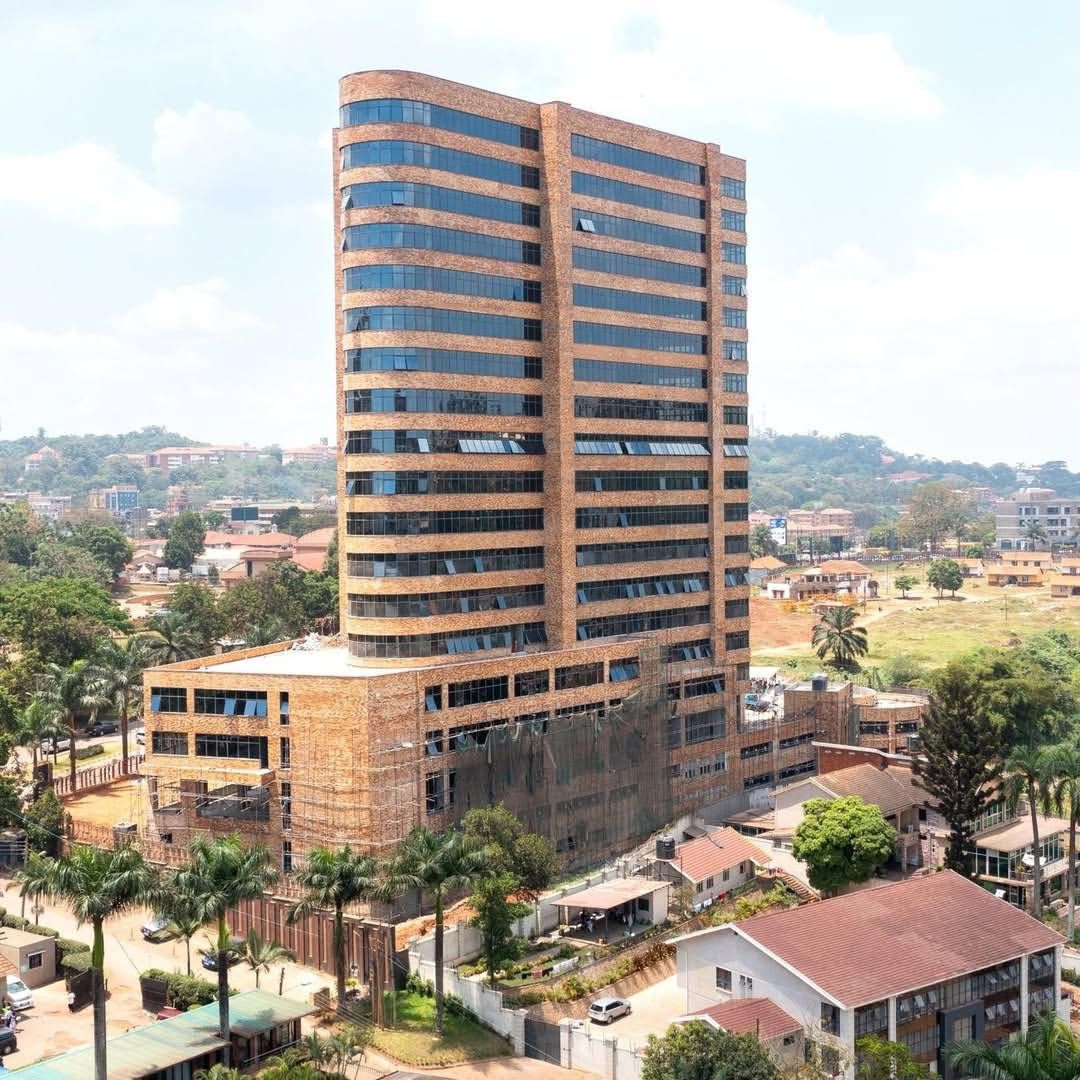When James MacGregor Burns, a celebrated American historian and political scientist said in his 1978 work “…leadership is one of the most observed and least understood phenomena on earth, he meant that despite being extensively studied and observed, leadership remains poorly misunderstood due to its intricate nature and various contexts.
The quote originates from his 1978 book “Leadership”, and in this seminal work, Burns aimed to generalize about leadership processes across cultures and time, exploring the complex dynamics between leaders and followers.
He emphasized that leadership is not just about authority or power but about relationships, collective purpose, and social change.
Unfortunately, Busoga sub-region in eastern Uganda is a prime example of this phenomenon, where leadership challenges have hindered progress and development.
Under the leadership of HRH William Wilberforce Kadhumbula Nadiope Gabula IV, the monarch with a passion for education and knowledge, the region has the potential to excel.
However, petty squabbles, factionalism, political myopicism and leadership challenges have inhibited progress.
Busoga covers approximately 10,584 square kilometers, with a population of around 4,363,295 people, according to the latest data from the Uganda Bureau of Statistics.
The region is blessed with fertile lands, abundant water resources Lake Victoria shared by neighboring Kenya and Tanzania, home to the Source of the Nile and a rich cultural heritage.
Yet, despite these advantages, Busoga struggles with some of the most pressing challenges facing the country.
Poverty, teenage pregnancies, poor education, preventable diseases and low literacy levels are just a few of the issues that have plagued the region for decades.
Experts point to poor leadership as a major contributor to these challenges arguing that the biggest challenge facing Busoga is not poverty or lack of resources, but rather poor leadership.
Former Minister and veteran politician-cum investor Hon. Daudi Migereko notes that when leaders spend more time fighting and pulling down one another, it means they have no time to gather energy around critical issues affecting their people.
“…It’s time for leaders to put aside their differences and work towards a common goal, the prosperity and stability of Busoga, otherwise ‘Tuli bavu’, meaning we are poor’ will continue to be the catchphrase in the area…”, he cautions.
With the right leadership and a focus on development, Hon Migereko who owns the swanky Source of the Nile Hotel says Busoga can realize its potential and become a thriving hub of economic activity and social progress.
Quoting celebrated American speaker and pastor John Curtis Maxwell Jr who said, “A leader is one who knows the way, goes the way, and shows the way”, Migereko who quit elective politics after intrigue by some politicians in 2016 says it is time for Busoga’s leaders to show the way forward.
Veteran journalist-cum businessman Tom Kalumula, the CEO Suppliers World Uganda Ltd (SWUL) says without effective leadership which is very critical, Busoga’s potential will continue to be squandered.
SWUL is a multi modal freight logistics hub providing third party customs bonded inland container depot services and facilitation to importers in Uganda through Jinja City.
In an exclusive interview with Watchdog Uganda (a respectable online newspaper), Tom Kalumula emphasized that effective leadership is the linchpin to unlocking Busoga’s vast potential.
Without it, he says the region will continue to squander its opportunities and struggle with underdevelopment.
“…Busoga’s potential is being held back by leadership’s selfish interests; we need leaders who can put the region’s development above personal agendas. The region’s abundant natural resources and strategic location make it an attractive hub for investment and growth, but this can only be realized with visionary leadership…”, Kalumula commented.
According to Tom Kalumula and other analysts, Busoga’s leadership challenges are characterized by clique formation, where leaders prioritize the interests of their own groups over the needs of the broader community.
“…the persistent leadership’s inability to speak with one voice has created disunity, with residents wondering who truly represents their interests…,” he noted.
Kalumula’s concerns are echoed by other prominent figures, including the former speaker of parliament Rt. Hon. Rebecca Alitwala Kadaga now the First Deputy Prime Minister, who recently criticized Busoga leaders for their disunity and lack of focus on regional development.
Rt Hon Kadaga emphasized the need for leaders to prioritize pressing issues like infrastructure development over personal rivalries.
Factions with de facto leaders have polarized followers, working covertly or overtly to neutralize opposing camps. This has resulted in a lack of cohesion and direction, hindering the region’s progress.
The inability of leaders to speak with one voice has created a sense of disunity, where residents are left wondering who truly represents their interests.
This disunity has far-reaching consequences, including the inability to effectively leverage government programs, wasted opportunities for collective progress, polarization of residents along personal lines, and a lack of accountability and transparency in leadership.
To address these challenges, commentators suggest that Busoga needs leaders who can foster unity, prioritize development, and truly represent the people.
“…we need leaders who can encourage collaboration and inclusivity in decision-making processes, focus on initiatives that benefit the broader community, and serve the interests of Busoga’s residents, rather than personal or factional agendas,” they emphasized.
Busoga’s leadership challenges are also characterized by clique formation, where leaders prioritize the interests of their own groups over the needs of the broader community.
The persistent leadership’s inability to speak with one voice has created disunity, with residents wondering who truly represents their interests.
This was also evidenced in the just concluded NRM primary elections in which some powerful leaders worked hard to either sponsor rivals to their perceived opponents or frustrated them so that ‘weaker’ candidates secure the flag ready to lose in the main elections leaving them as the only bulls in the political kraal in Busoga.
The same infighting has always spilled over to the extent that politicians from the region join hands with retrogressive powerful counterparts from other regions to help in removing or blocking the perceived opponents from elective positions.
To break this cycle, analysts argue that Busoga needs transformative leadership that prioritizes citizen needs, fosters collaboration, and promotes transparency and accountability.
They cite initiatives like Busoga Development Consortium (BCD) that aim to guide the region’s transformation, focusing on commercial agriculture, tourism, education, and infrastructure development.
BCD is a non-partisan platform that aims to steer the socio-economic development of Busoga and is already making impact in many parts of the region where strong collaboration and exchange programme with some Chinese cities and provinces are ongoing.
The mission is to rally rally the people and friends of Busoga resident in Uganda and in the Diaspora to contribute to the sub region’s development. It can be headed by an LC5 chairman sometimes referred to as “Governor” elected from the 12 higher local government leaders of Busoga.
Data available indicates that BCD has a 10-year Busoga Development Agenda (BDA)focusing on eight pillars, namely commercializing agriculture, tourism, culture and heritage, education and skills development, road and water infrastructure development, environmental sustainability, industrialization and private sector development and health improvement and land and mineral resources development.
Unity and Cohesion: Busoga’s leaders must put aside differences and work towards collective progress.
Prioritizing Citizen Needs: Leaders should focus on addressing pressing issues, such as education, healthcare, and economic opportunities.
Transformative Leadership: Busoga needs leaders who can drive growth, development, and prosperity for all.
This has led to a lack of cohesion and coordination in development efforts, with resources being concentrated in the hands of a few individuals. In Jinja, factions with de facto leaders bearing titles like “Prime Minister” have polarized followers, working covertly or overtly to neutralize opposing camps.
The dynamics of leadership in Busoga particularly when it comes to political maneuvering and power struggles are quite complex. There are concerns that some leaders use their strategic positions for personal or regional interests than focusing on development.
A concerning trend has also emerged in Busoga where leaders are accused of using their strategic positions to block and frustrate others rather than focusing on development.
According to multiple sources, some leaders are more interested in lobbying President Yoweri Museveni to table allegations against rival politicians from the same region rather than pushing for development agenda.
This has led to accusations of unpatriotic behavior with some leader allegedly using their unpatriotic and often corrupt proxies in State House to destroy documents and block correspondences from perceived opponents or potential rivals.
Insiders claim that this is a desperate and deliberate attempt to undermine political opponents who even belong to the same ruling NRM party and maintain a grip on power.
The impact of these power struggle is felt by the people of Busoga who are left to suffer from underdevelopment and lack of progress. It is also not uncommon for delegates from Busoga who subscribe to the ruling party to openly quarrel or disagree in front of President Museveni in reconciliation meetings.
A stark example of the region’s leadership challenges is the failed proposal to transform Jinja Senior Secondary School into a university.
Over 15 or so years ago, local leaders floated the idea, but it was ultimately shot down by a handful of politicians who argued that the government should build a public university from scratch.
The failure to establish a public university in Busoga has meant that many students are forced to seek education elsewhere, often at a higher cost that most ordinary parents cannot afford.
“…it is disheartening to see our leaders prioritizing personal interests over the needs of the people,” some residents complained.
The Vicious cycle of Poverty in Busoga-A Politician’s Blessing In Disguise
Ironically the persistent rating of Busoga as one of the poorest regions in Uganda has become a blessing in disguise for some politicians.
They take advantage of these findings as campaign gimmicks portraying themselves as champions of the region’s plight and promising change.
This kind of narrative has proven effective in securing votes allowing them to maintain their grip on power.
The cycle of poverty and politicking has become self-perpetuating. Commentators say by focusing on Busoga’s poverty, politicians can always continue to solicit sympathy and support rather than being held accountable for tangible progress.
This has raised questions about the true motivations and their commitment to driving meaningful development agenda in Busoga.
While Busoga still faces significant development challenges, it is essential to acknowledge the tangible achievements that have been made.
The creation of municipalities like Kamuli and Iganga with a sizeable network of paved roads as well as the establishment of Jinja City are notable examples of progress than cannot be ignored.
More so, the appointment of sons and daughters of Busoga to key positions like the Executive Director and the Deputy Executive director of KCCA Hajjat Sharifah Buzeki and Benon Moses Kigenyi appointed by President Museveni in December 2024 all from Busoga is another testament of lobbying by some leaders from Busoga.
The Executive Director National Planning Authority Dr Joseph Muvawala who doubles as Busoga Kingdom premier is another great example.
The appointment of several sons and daughters of Busoga as RDCs, Deputy RDCs and Assistant RDCs also demonstrates the region’s representation in the central government.
In fact, Busoga has a significant presence in these positions, courtesy of Presidency Minister Hon Milly Babirye Babalanda one of the gallant daughters of the soil and the flamboyant Hajji Farouk Kirunda the Special Presidential Assistant for Press and Mobilization/Deputy Spokesperson another benevolent son.
These achievements show case the impact of leadership and government initiatives on the region’s development.
However, despite these gains, challenges have persisted although there is still room for improvement but the much-anticipated general elections will most likely exacerbate the schism.
It is only when leaders and politicians recognize both the progress made and challenges that remain then they can work towards a more comprehensive understanding of Busoga’s development trajectory.
Commercialization of Politics- A Threat to Leadership.
The commercialization of politics has further complicated the scenario, with some leaders using their wealth and influence to manipulate the electoral process.
This has created a tricky scenario where individuals who have amassed wealth through dubious means go into politics and confuse the gullible and poverty-stricken voters using petty cash and items like salt, sugar, soap, and cheap alcohol to get their way into leadership positions.
According to analysts who preferred anonymity, when politics becomes a business, leaders prioritize personal gain over serving the constituents.
This sentiment is echoed by many people who observe that the commercialization of politics has led to a disconnect between leaders and their constituents.
Leaders are more focused on accumulating wealth and power than addressing the needs of their people and when they get the positions, they focus more on how to recover their expenses.
Despite the goodwill generated by the 2024 Royal Wedding, which attracted both the crème de la crème and the hoi polloi of the nation and raised cash and gifts worth not less than 10 billion Uganda shillings, leaders appear to be more divided than ever.
The schism highlights the deep-seated leadership challenges affecting Busoga’s growth and development.
The Twegaite International Silver Jubilee Convention, meant to celebrate 25 years of unity and progress at the Hyatt Centric Downtown Minneapolis, a 4-star hotel located in the heart of Minneapolis, Minnesota was allegedly shunned by a group opposed to certain leaders.
Among the top officials who attended the event which attracted more than 600 delegates included Rt Hon Rebecca Alitwala Kadaga, Local Government Minister Hon Raphael Magyezi, Central Busoga Diocesan Bishop Rt Rev Patrick Wakula and his wife, Ambassador Zaake Kibedi (UAE), Busoga kingdom Tourism Minister Owek. Hellen Namutamba, Jinja City Council Speaker Bernard Mbayo and NUP’s Alex Mufumbiro whose personal love for Kadaga is undisputable. Not a single MP from Busoga attended.
The Twegaite International Convention was abuzz with excitement as two Ugandan dynamic performers Spice Diana whose real name is Diana Namubiru and jazz saxophonist Isaiah took to the stage electrifying the crowd with their captivating presence.
Another group headed by music star ‘Gen’ Mega Dee whose real name is Amos Kigenyi registered a new entity called Twegaite Global and held a parallel convention in Los Angeles, California hundreds of miles away.
The new group is headed by figures like Joy Loy Lwabaai and Monica Namukwana, among others.
A top Busoga kingdom official also opted to attend the new body because of a serious conflict with one of the officials at the Minneapolis Convention.
This disturbing incident underscores the need for leaders to put aside their differences and work towards a common goal. It has also sparked debate among the Basoga community members, raising questions about the future of the region’s development initiatives with some calling for unity in diversity.
In conclusion, Busoga needs transformative leadership that prioritizes citizen needs, fosters collaboration, and promotes transparency and accountability.
With the right leadership and a focus on development, Busoga should be able to realize its potential and become a thriving hub of economic activity and social progress.
Do you have a story in your community or an opinion to share with us: Email us at Submit an Article









